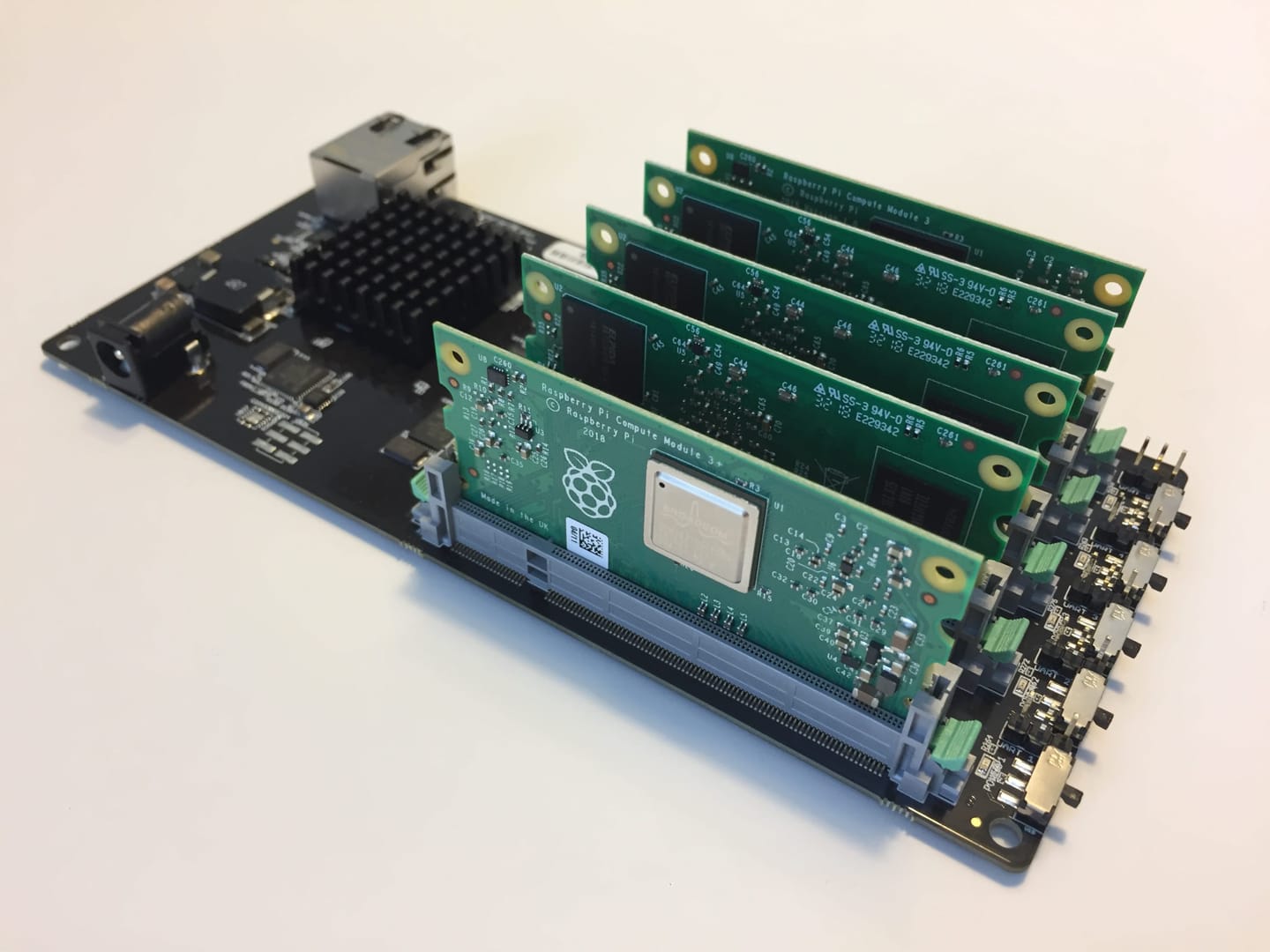mininode ARM Servers

The 5 Node Raspberry Pi 3 CoM Carrier Board
mininodes©
5 Node Raspberry Pi 3 CoM Carrier Board
The miniNodes Raspberry Pi 3 CoM Carrier Board can accommodate up to 5 Raspberry Pi Computer on Modules (CoM) in a small, easy to use platform. The Carrier Board has an integrated gigabit switch that simply needs one ethernet uplink, that delivers connectivity to all 5 modules and makes them available on your network. The other side of the board has a power barrel which provides power to the CoM’s. Each of the Compute Modules also has as individual power on/off switch, a serial port header for console access to the node, and a small LED indicating power to the node. The latest Raspberry Pi CM3+ compute modules come with 8gb, 16gb, or 32gb of eMMC on board, so, there is no need to use SD Cards like on the regular Raspberry Pi boards. Thus, fully loaded, you have 5 nodes consisting of 4 cores, 1gb of RAM, and up to 32gb eMMC each, for a total of 20 cores, 5gb RAM, and up to 160gb of storage.
The carrier board cannot flash OS images to the CM3’s onboard eMMC. For that you will need a separate device, such as the GumStix Fast Flash. Raspberry Pi Compute Modules are not included, and must be ordered separately.
The miniNodes Raspberry Pi 3 CoM Carrier Board can be used to provide extreme edge compute capacity in remote environments, industrial settings, or space constrained locations. Applications or containers can be delivered to the Pi’s, to run workloads closer to the edge of the network or in places not previously possible.
Or, it can be used right on your desk as a great way to learn compute clustering, Docker Swarm, Kubernetes, TensorFlow, or general purpose development leveraging Python, Arm, Linux, and more!
Description
5-Node Raspberry Pi 3 CoM Carrier Board is a robust solution that can be used in a wide range of scenarios to deliver low-power compute capacity to places that were not previously accessible. The Raspberry Pi System on Modules offer great software compatibility, low power and thermal footprints, and tiny physical dimensions.
Potential use cases for the Carrier Board include extreme edge computing in remote locales such as villages and rural communities; Industrial Internet of Things enablement such as factory automation and monitoring of production and assembly lines; commercial building automation, HVAC, and energy consumption analysis; smart city data acquisition and image pre-processing captured in roads, intersections, and sidewalks; airport, train station and tracks, shipping and marine ports, and other infrastructure terminals; mining, forestry, environmental, and renewable energy installations such as solar, wind, or hydro; and many more scenarios where machine learning and artificial intelligence at the edge, Internet of Things and IIoT are rapidly developing.










